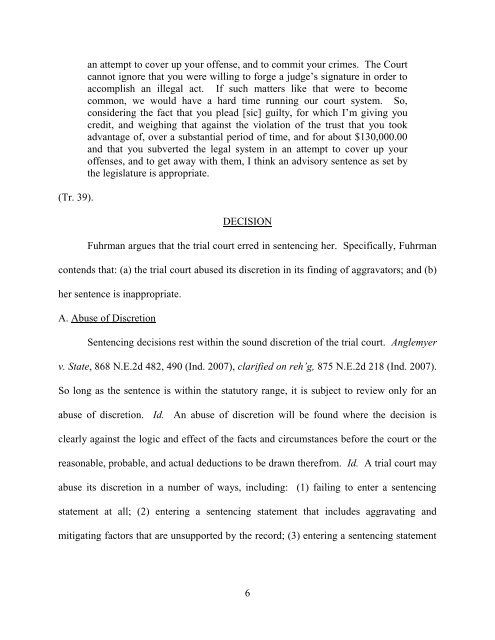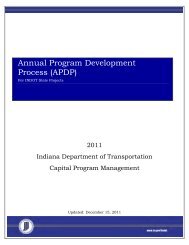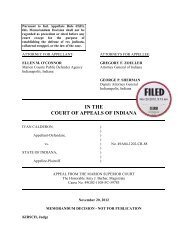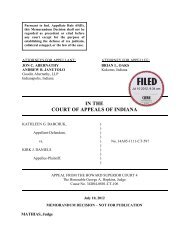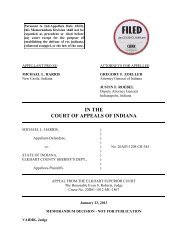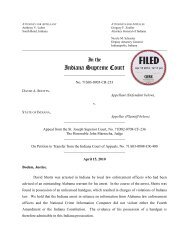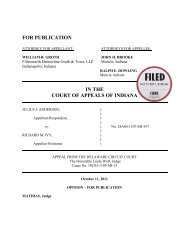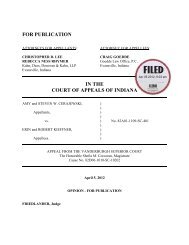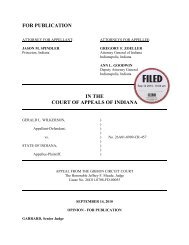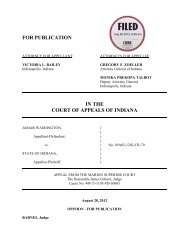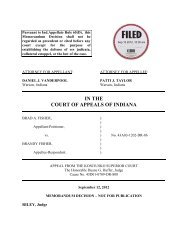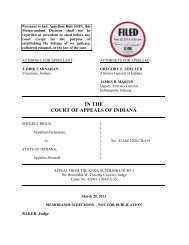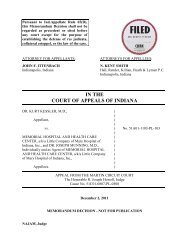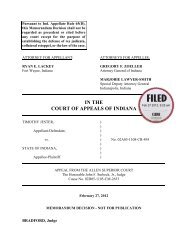Holly Fuhrman v. State of Indiana
Holly Fuhrman v. State of Indiana
Holly Fuhrman v. State of Indiana
You also want an ePaper? Increase the reach of your titles
YUMPU automatically turns print PDFs into web optimized ePapers that Google loves.
(Tr. 39).<br />
an attempt to cover up your <strong>of</strong>fense, and to commit your crimes. The Court<br />
cannot ignore that you were willing to forge a judge’s signature in order to<br />
accomplish an illegal act. If such matters like that were to become<br />
common, we would have a hard time running our court system. So,<br />
considering the fact that you plead [sic] guilty, for which I’m giving you<br />
credit, and weighing that against the violation <strong>of</strong> the trust that you took<br />
advantage <strong>of</strong>, over a substantial period <strong>of</strong> time, and for about $130,000.00<br />
and that you subverted the legal system in an attempt to cover up your<br />
<strong>of</strong>fenses, and to get away with them, I think an advisory sentence as set by<br />
the legislature is appropriate.<br />
DECISION<br />
<strong>Fuhrman</strong> argues that the trial court erred in sentencing her. Specifically, <strong>Fuhrman</strong><br />
contends that: (a) the trial court abused its discretion in its finding <strong>of</strong> aggravators; and (b)<br />
her sentence is inappropriate.<br />
A. Abuse <strong>of</strong> Discretion<br />
Sentencing decisions rest within the sound discretion <strong>of</strong> the trial court. Anglemyer<br />
v. <strong>State</strong>, 868 N.E.2d 482, 490 (Ind. 2007), clarified on reh’g, 875 N.E.2d 218 (Ind. 2007).<br />
So long as the sentence is within the statutory range, it is subject to review only for an<br />
abuse <strong>of</strong> discretion. Id. An abuse <strong>of</strong> discretion will be found where the decision is<br />
clearly against the logic and effect <strong>of</strong> the facts and circumstances before the court or the<br />
reasonable, probable, and actual deductions to be drawn therefrom. Id. A trial court may<br />
abuse its discretion in a number <strong>of</strong> ways, including: (1) failing to enter a sentencing<br />
statement at all; (2) entering a sentencing statement that includes aggravating and<br />
mitigating factors that are unsupported by the record; (3) entering a sentencing statement<br />
6


